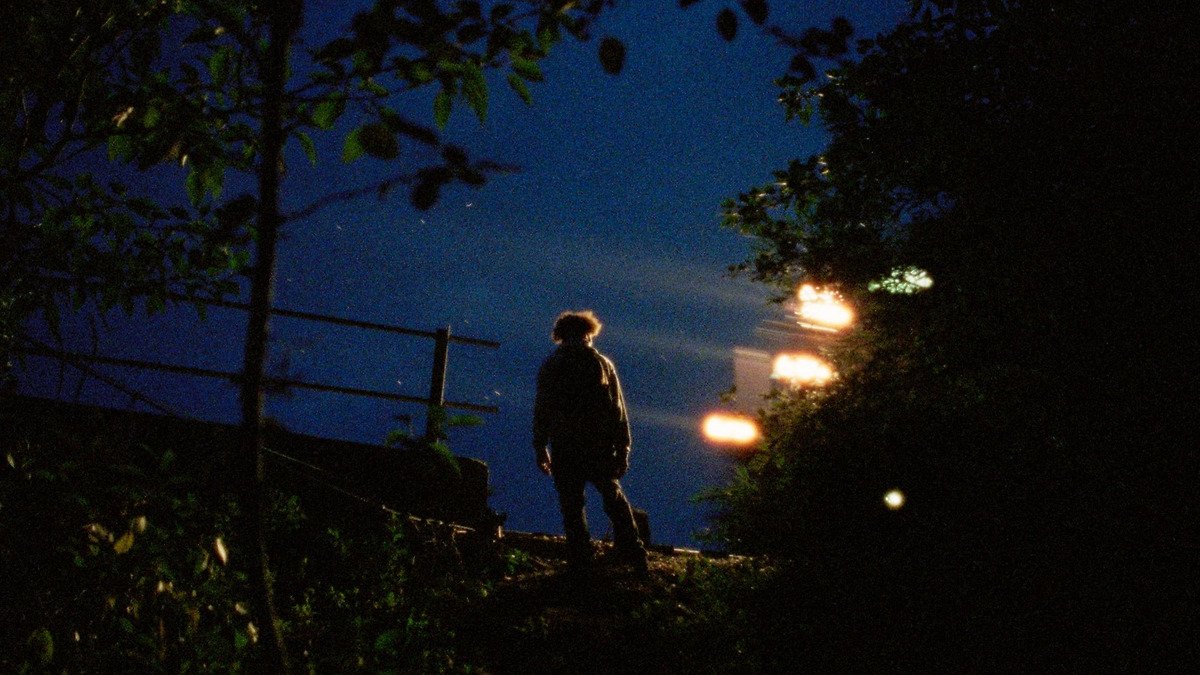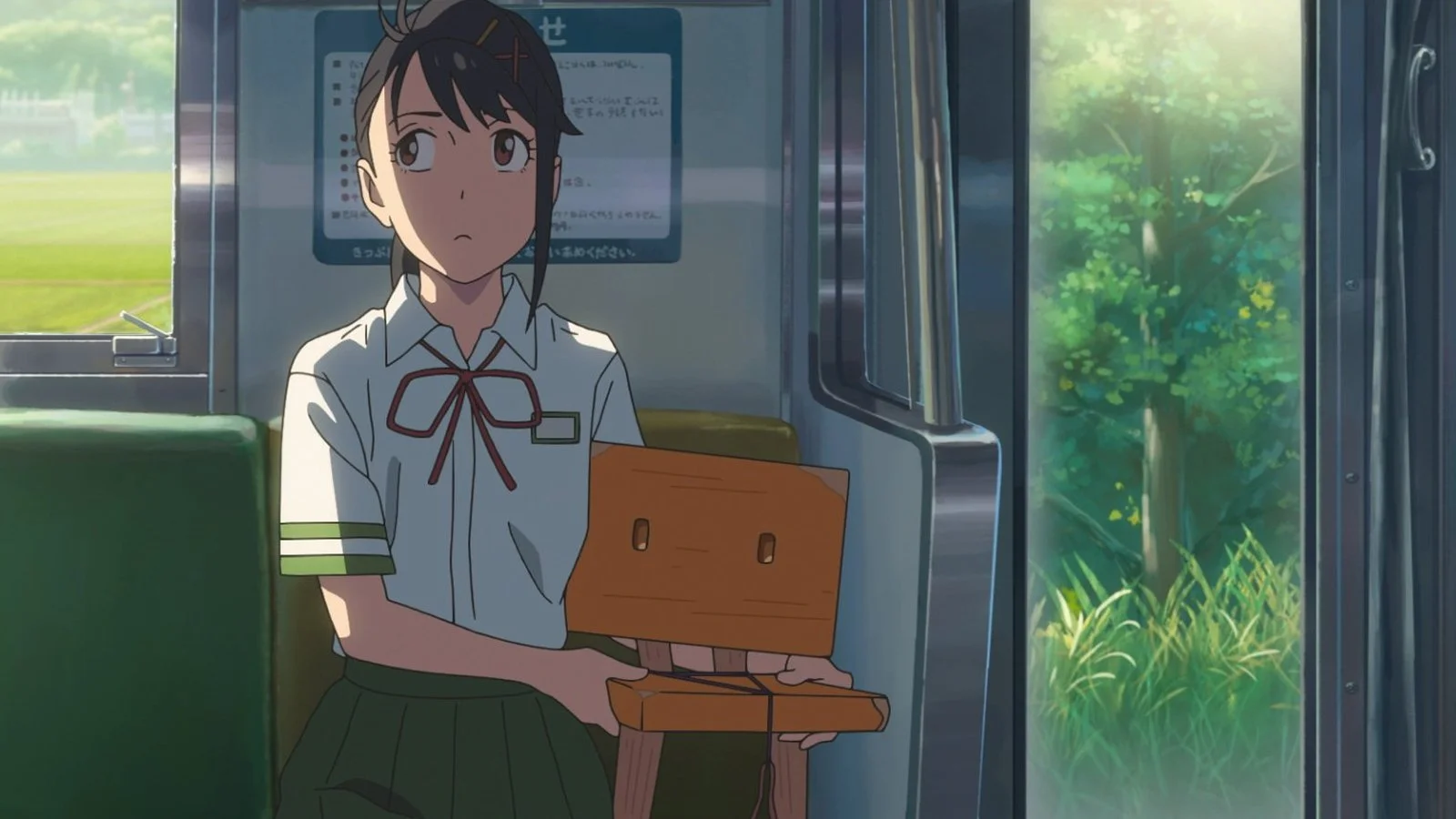Top 10 Films of 2023
1. Oppenheimer (dir. Christopher Nolan)
Christopher Nolan’s epic biography of J. Robert Oppenheimer, the father of the atomic bomb, is the most enthralling movie of the year. It’s also the most unlikely blockbuster of the year, as I didn’t think the three-hour runtime, historical setting, and dour subject matter would resonate with mass market audiences. But Christopher Nolan knows how to challenge and engage large audiences who only see a few movies a year. Furthermore, the film’s lessons on moral compromise and the destructive power of modern man resonate with audiences in a world where the prospects of nuclear war are closer than at any time since the fall of the Soviet Union.
Although Oppenheimer is big and weighty in its subject matter, it is fast-paced and riveting from scene to scene. Oppenheimer is also formally daring, as Nolan crafts the narrative as one constant montage, using parallel editing to jump between two timelines showcasing the great challenges of Oppenheimer’s career: his work to create the atom bomb during the Manhattan Project and his public fall from grace during America’s anti-communist panic. The result, embodied by the pitch-perfect and haunting final scene, is a film that rises to the challenge of showcasing an event as epoch-making: something that reverberates through time, continuing to define our present even as it embodies the complex contradictions of an increasingly distant past. I’m a huge fan of Christopher Nolan and many of his films have landed at the top of my yearly Best of lists, but even considering his high standards, Oppenheimer is one of his very best.
2. The Boy and the Heron (dir. Hayao Miyazaki)
The Boy and the Heron, which might end up being the final film from Hayao Miyazaki, might seem familiar in its fantastical storytelling and captivating imagery, but it’s by no means a retread for the master of animation. In telling the story of an angry boy who must rescue his stepmother from a fantastical world during the midst of World War II, Miyazaki crafts a lesson about processing grief, overcoming anger, and making peace with a broken world. Furthermore, it’s a film that demonstrates a remarkable moral clarity about the purpose of life and the worth of the stories we create. For example, it’s during the captivating heights of the film’s fantasy sequences, when we’re treated to breathtaking visions of towering castles, epic sea worlds, and heavenly processions of souls preparing to be born into the world, that Miyazaki questions the value of such visions if they are dependent on the abandonment of the world and the people within it. The film demonstrates the sort of spiritual wisdom and artistic curiosity that is only possible from a master of his craft. Miyazaki is able to forgo easy answers and questions his own legacy in the midst of cementing it with one of his greatest accomplishments.
3. The Maiden (dir. Graham Foy)
It’s rare to watch a movie that captures the elusive, too-real power of dreams, despite how many movies attempt to conjure dreamscapes on screen. It’s rarer still to find such a movie from a debut filmmaker, and a Canadian one at that! But The Maiden is the kind of remarkable film that is so ethereal, and so far from the mainstream (even as far as independent cinema goes) that it seems like a minor miracle. Following some lonely teenagers on the outskirts of Calgary, Alberta in the aftermath of a tragedy, The Maiden conjures a cinematic vision and atmosphere that provokes the same response as our most vivid dreams. It’s a haunting demonstration of how the dead linger in the living world and a reminder that our world is far more malleable, and our art far more capable of genuine innovation, than we usually presume to think. The Maiden got a tiny theatrical release in Canada in early summer and has yet to premiere theatrically in the States, so it’s likely to remain something of a secret success, the kind of movie that earns its comparisons to David Lynch while embodying a bold, entrancing style of filmmaking all its own.
4. Suzume (dir. Makoto Shinkai)
In a year of many successful blockbusters, Makoto Shinkai’s Suzume remains the most satisfying demonstration of well-worn storytelling conventions. This anime adventure is an environmental fable that ties together Japan’s history of natural disaster with a supernatural quest and teen melodrama. It’s a beautiful film in terms of both style and content with majestic visuals and a loving attention to detail. It also pays as much attention to the emotional lives of its characters as the fantastical plot that fuels its action, making it the rare blockbuster to delight in mundane details about people and their hopes and dreams as much as the exciting action set pieces. Shinkai proved with Your Name that he was capable of making big, romantic melodramas that resonated across continents. With Suzume, he proves that he’s also capable of exploring everything from the complications of teen romance to humanity’s moral responsibility for natural disasters without compromising one element in favour of another. This is a textured, moving, deeply entertaining picture that should serve as a lesson on how to properly comment on environmental decay without compromising mainstream adventure storytelling.
5. Skinamarink (dir. Kyle Edward Ball)
Skinamarink is a living nightmare and the scariest movie since It Follows. It’s also one of the most remarkable cases of experimental cinema breaking through into the mainstream, even if only for a moment. Its radically-subjective filmmaking style, which refuses all situational context as well as the very faces of its characters on screen, is more akin to the work of the late Michael Snow than Blumhouse and other mainstream horror productions. The result of such an experimental approach is the true definition of a love-it-or-hate-it movie, one that shredded my nerves and worked its way into my subconscious like a recurring dream, but is likely to leave an equal number of moviegoers positively baffled. But such passionate responses speak to the film’s power. Like the song that inspired its name, you’ll never forget Skinamarink.
6. The Holdovers (dir. Alexander Payne)
The Holdovers is destined to become a new Christmas classic, partially because it feels like a movie made 50 years ago. Set in 1970 and shot like a Hal Ashby film, The Holdovers forces three disparate, lonely individuals (played by Paul Giamatti, Dominic Sessa, and Da’Vine Joy Randolph) to spend a Christmas together at a New England boarding school and watches with patience and curiosity as these people bond, often against their best wishes. Payne is a talented filmmaker whose penchant for bilious humour often gets the better of him. The Holdovers is funny and often coarse, perhaps even harsh at moments, but it’s never cruel, towards the audience, or, more importantly, its characters. Rather, it delights in the details of their lives and gives them the space to improve as people with the sort of patience and affectionate lens that is increasingly rare in contemporary cinema.
7. BlackBerry (dir. Matt Johnson)
BlackBerry is proof that Canadian cinema is capable of the kind of rip-roaring entertainment and pop-culture mythmaking that usually eludes the national arts community. In telling the story of the rise and fall of the Canadian telecom company Research In Motion (RIM), which created the first smartphone, the BlackBerry, Canadian indie filmmaker and provocateur Matt Johnson (who also stars) creates a kind of synthesis between The Social Network, an SNL spoof, and Adam McKay’s historical films. The film plays the hits in terms of a corporate rise and fall narrative with far-reaching cultural consequences, and has an energetic, documentary-style approach, which lends an urgency to its historical depictions. But it’s also hilarious and completely non-deferential to the material, as happy to mock the absurd affectations of its characters as celebrate their commercial success. The performances are especially compelling, including Jay Baruchel who has never been better than playing the quiet genius Mike Lazaridis, and especially Glenn Howerton, whose rage-fuelled Jim Balsillie epitomizes the psychotic impulses of the modern businessman. Hollywood depictions of recent corporate or tech history are rarely this fun.
8. Master Gardener (dir. Paul Schrader)
Despite being the least of Paul Schrader’s remarkable America trilogy of recent years (which includes First Reformed and The Card Counter), Master Gardener is one of the most provocative and reassuring films of the past year. You might wonder about the odd combination of provocation and reassurance, but such is the earnest power of Schrader’s latest film. The provocation comes from the film posing the question of whether a racist murderer can truly reform, as the title character played by a never-better Joel Edgerton is a former white supremacist gang member. Now leading an ascetic life as a gardener, he falls in love with a young black woman and has to face the unresolved issues of his past if he has a hope of forging a new path forward. The reassurance comes from the film’s hopeful depiction of healing and grace, truly believing that grace is given to every man who earnestly seeks it. Thus, Master Gardener is not only Paul Schrader once again creating a compelling exercise in the transcendental style, but also crafting his most optimistic work to date, which is a dazzling romance even as it interrogates the deepest depths of the human soul.
9. The Killer (dir. David Fincher)
The Killer is something of a return to form for David Fincher after the minor disappointment of Mank. It’s also perhaps the funniest movie of his career, as Michael Fassbender’s meticulous assassin works as a stand-in for the perfectionist director, with his ironic, self-deluding narration serving as a running commentary on Fincher’s own obsessive impulses. The Killer is also a canny deconstruction of globetrotting assassin narratives, with many of the components of a hitman thriller, such as some of the most exciting action scenes of Fincher’s career, but with a slightly-removed vantage point that sheds new light on such proceedings. The film is also a perceptive commentary on our modern consumer world, with most of the assassin’s tools and targets a result of the transactional nature of all human interaction in the 21st century. I can’t think of a better movie to embody our atomized, commercialized, globalized current moment.
10. Dungeons & Dragons: Honor Among Thieves (dir. Jonathan Goldstein & John Francis Daley)
Dungeons & Dragons: Honor Among Thieves is the funniest movie of the year. It’s also what big-budget, four-quadrant entertainment based on popular IP should look like, giving me hope that there’s a way forward in a Hollywood overwhelmed by old brands. Chris Pine and Michelle Rodriguez are charismatic leads, the special effects and production design are top-notch, bringing to life fantastic worlds, and the story has clear and real stakes for all involved. But most importantly, Dungeons & Dragons has real jokes, with clear structure, smart construction, and genuine payoffs, none better than the early appearance of the absurdly-named birdman Jarnathan, which caps off the riveting and hilarious opening sequence. There’s no more rewatchable movie from 2023, nor another movie that more deserves a sequel.
Another 10
Ferrari (dir. Michael Mann)
Godland (dir. Hlynur Pálmason)
Godzilla Minus One (dir. Takashi Yamazaki)
Killers of the Flower Moon (dir. Martin Scorsese)
Knock at the Cabin (dir. M. Night Shyamalan)
May December (dir. Todd Haynes)
Scala (dir. Ananta Thitanat)
Spider-Man: Across the Spider-Verse (dir. Joaquim Dos Santos, Kemp Powers, Justin K. Thompson)
Total Trust (dir. Zhang Jialing)
The Zone of Interest (dir. Jonathan Glazer)









